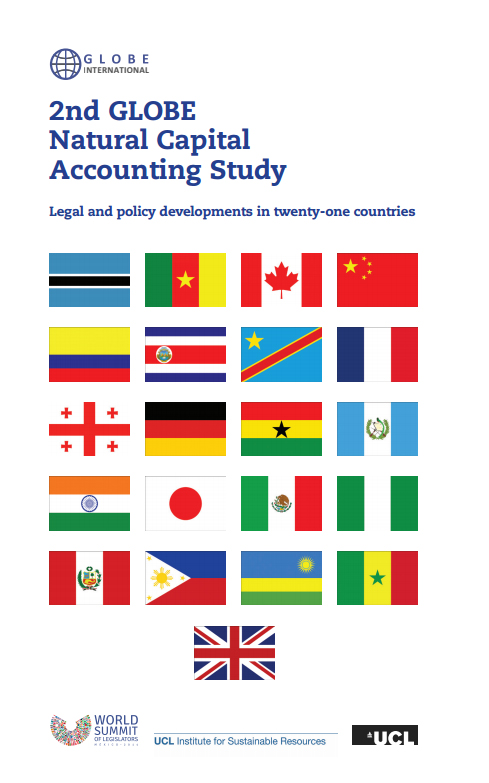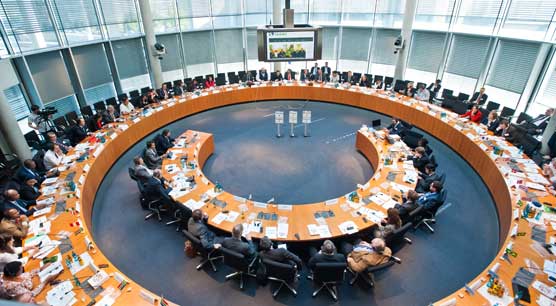The natural environment provides goods and services that are essential for our well-being and development. Every part of the natural environment that is capable of contributing to human well-being is a capital asset – part of our ‘natural capital’.
Human activity has substantially degraded the natural environment. The global stock of natural capital and valuable goods and services that it provides are being rapidly depleted, in some cases irreversibly. However the status of natural capital is not captured comprehensively by conventional wealth accounting frameworks such as the UN System of National Accounts, or by economic activity measures such as GDP. Therefore there is an urgent need to implement effective methods and measures for natural capital accounting and to embed these within relevant legal and policy frameworks.

This Study is designed to inform efforts by legislators to address these needs.
The Study highlights experiences developing legal and policy frameworks for natural capital accounting, challenges and lessons learned in twenty-one countries and outlines a vision for future action to improve the global knowledge-base concerning legal and policy options for managing natural capital.
This Study’s three key conclusions are:
- Efforts to develop laws and policies for natural capital accounting rely on continued cooperation and diverse forms of support. This entails international effort – accounting standards such as UN–SEEA; commitments and goals such as the post-2015 SDGs and Convention on Biological Diversity; capacity-building and research partnerships such as WAVES. It also entails national efforts – across various parts of government and diverse stakeholders, including communities and the private sector.
- There is no ‘best practice’ approach to legal and policy reform for natural capital accounting. The task is complex and specific to national circumstances, cutting across many policies, institutions and sectors. Frameworks may involve combinations of new legislation, and new action under old laws. Practical national approaches that may prove useful for others are outlined.
- A key future challenge for legislators is to develop and share innovative approaches for sustainably managing natural capital. Accounting is an important step towards that goal – others are needed. This Study highlights initial steps that countries have taken to link natural capital accounting with broader strategies for natural capital management

RESULTS IN THE 1ST EDITION OF THE STUDY (DOWNLOAD HERE) SHOWED THAT:
- All eight countries are moving beyond thinking and experimentation towards the proper integration of natural capital into national accounting and policy making process.
- However none of the countries is advancing comprehensively on all the necessary fronts – wealth accounting, development of national ecosystem assessments, valuation of ecosystem services and institutional and legislative reform.
- The most comprehensive natural capital-specific legislation and policies are to be found in developed countries, although these are nonetheless failing to carry out a comprehensive overhaul of policies affecting natural capital, i.e. the unsuccessful ‘structural greening’ of the EU Common Agricultural Policy.
- Substantive progress is taking place in emerging economies, which shows how natural capital accounting is increasingly understood as an indispensable instrument supporting decision-making towards sustainable and inclusive socioeconomic development. In particular the popularity of payment per ecosystem services programmes in developing countries is a testament to the increased awareness of the linkages between environmental protection and sustainable economic development.
The 1st and the 2nd editions of the GLOBE Natural Capital Legislation Study were produced with the support of Deutsche Gesellschaft für Internationale Zusammenarbeit (GIZ) GmbH on behalf the German Federal Ministry for Economic Cooperation and Development (BMZ).


